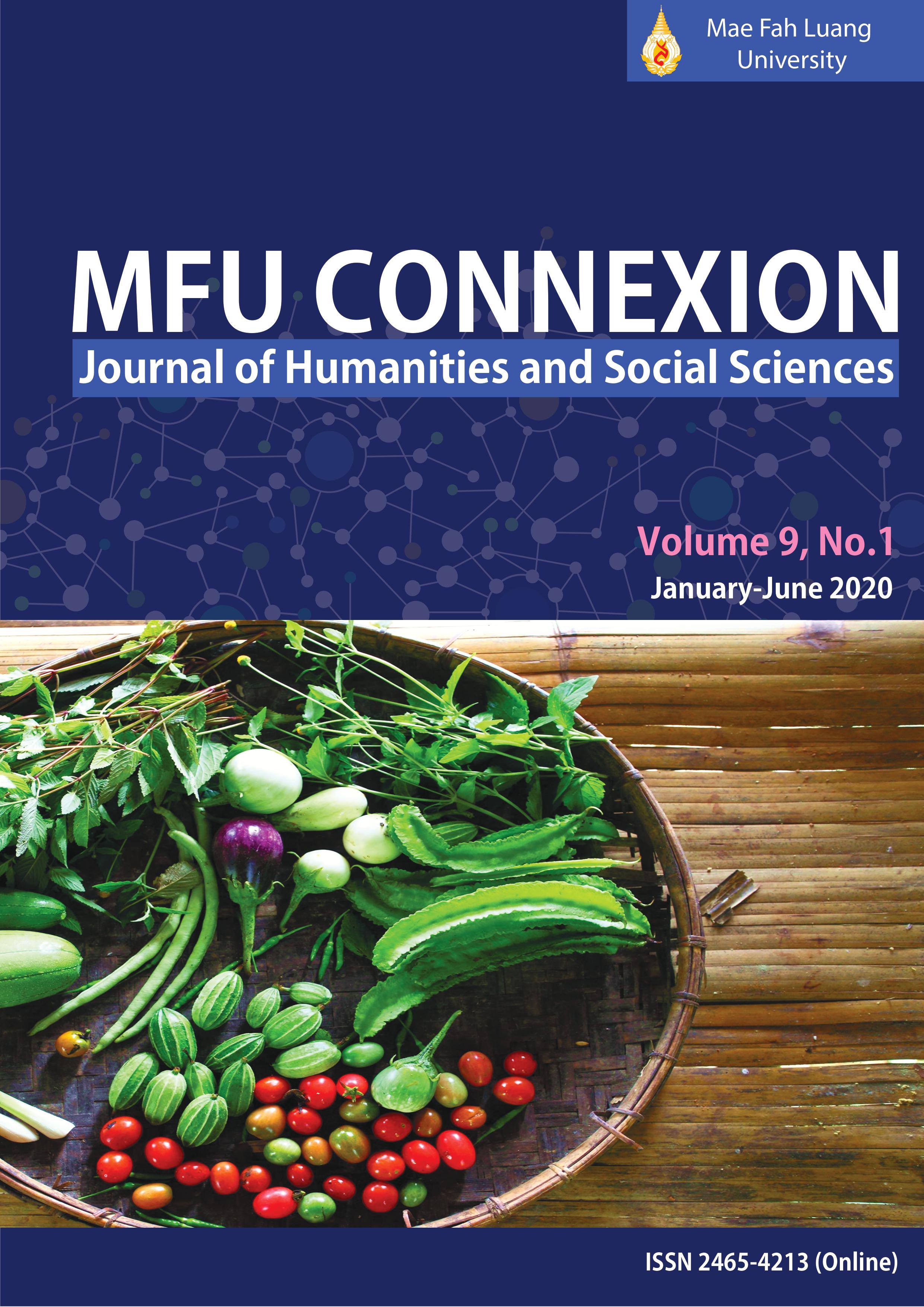Factors Influencing Consumers’ Purchase Intention for Organic Food Products in Thailand
Main Article Content
Abstract
Although organic food is increasingly popular globally, as a consumer market Thailand has been slow to adopt the organic movement. This research aimed to investigate factors in Thai consumer’s choice of organic food. An online consumer survey (n = 385) was conducted, collecting data about these factors and about consumers’ purchase intention of organic food. Results were analyzed using a regression approach. The findings showed that environmental awareness, environmental concern, institutional trust, perceived risk, and perceived availability had a positive effect on consumers’ purchase intention for organic food, while price sensitivity had a negative effect. All effects were significant at p < .05. The study findings imply that there are ways to improve consumers’ purchase intention of organic food in Thailand, namely improving environmental education, clarifying the role of organic certification, and increasing availability and reducing cost of organic food.
Article Details
Copyright
Connexion: Journal of Humanities and Social Sciences has an exclusive right to publish the accepted articles in any form. However, the author retains the following rights:
1. The right to the ownership of the article;
2. The right to use all or part of the article in his/her other works;
3. The right to re-produce the article for personal use or for use in the author’s organisation, in which case the author must obtain permission from Connexion: Journal of Humanities and Social Sciences;
4. The right to make copies of all or part of the work for educational use or for the author’s use in classroom teaching; and
5. The right to include the work (both the preprinted and printed versions) in an institutional repository.
References
Annunziata, A., & Scarpato, D. (2014) Factors affecting consumer attitudes towards food products with sustainable attributes, Agricultural Economics, vol. 60, no. 8, pp. 353-363.
Bryman, A., & Bell, E. (2015) Business research methods, London: Oxford University Press.
Francis, C. (2011) Rebels for the soil: The rise of the global organic food and farming movement by Matthew Reed [Book Reviews], NACTA Journal, vol. 55, no. 1, pp. 89-91.
Hair, J. F., et al. (2011) Essentials of business research methods, Armonk, NY: M.E. Sharpe.
Kavaliauske, M., & Ubartaite, S. (2014) Ethical behavior: Factors influencing intention to buy organic products in Lithuania, Economics and Management, vol. 19, no. 1, pp. 72-83.
Krejcie, R. V., & Morgan, D. W. (1970) Determining sample size for research activities, Educational and Psychological Measurement, vol. 30, no. 3, pp. 607-610.
Liu, R., et al. (2013) Consumers’ attitudes and behaviour towards safe food in China: A review, Food Control, vol. 33, no. 1, pp. 93-109.
Mohamad, S. S., et al. (2014) Organic food consumption among urban consumers: Preliminary results, Procedia Social and Behavioral Sciences, vol. 130, pp. 509-514.
Nuttavuthisit, K., & Thøgerson, J. (2017) The importance of consumer trust for the emergence of a market for green products: The case of organic food, Journal of Business Ethics, vol. 140, no. 2, pp. 323-337.
Organic Trade Association. (2019) Thailand, Available: https://globalorganictrade.com/country/thailand [15 February 2019]
Paul, J., & Rana, J. (2012) Consumer behavior and purchase intention for organic food, Journal of Consumer Marketing, vol. 29, no. 6, pp. 412-422.
Pearson, D., et al. (2011) Organic food: What we know (and do not know) about consumers, Renewable Agriculture and Food Systems, vol. 26, no. 2, pp. 171-177.
Ramirez, E., & Goldsmith, R. E. (2009) Some antecedents of price sensitivity, Journal of Marketing Theory and Practice, vol. 17, no. 3, pp. 199-214.
Reed, M. (2010) Rebels for the soil: The rise of the global organic food and farming movement, Washington, DC: Earthscan.
Roitner-Schobesberger, B., et al. (2008) Consumer perceptions of organic foods in Bangkok, Thailand, Food Policy, vol. 33, no. 2, pp. 112-121.
Sønderskov, K. M., & Daugbjerg, C. (2011) The state and consumer confidence in eco-labeling: Organic labeling in Denmark, Sweden, the United Kingdom and the United States, Agriculture and Human Values, vol. 28, no. 4, pp. 507-517.
Sangkumchaliang, P., & Huang, W.-C. (2012) Consumers’ perceptions and attitudes of organic food products in Northern Thailand, The International Food and Agribusiness Management Review, vol. 15, no. 1, pp. 87-102.
Shafie, F. A., & Rennie, D. (2012) Consumer perceptions towards organic food, Procedia Social and Behavioral Sciences, vol. 49, pp. 360-367.
Soyez, K., et al. (2012) How individual, product and situational determinants affect the intention to buy and organic food buying behavior: A cross-national comparison in five nations, der Markt, vol. 51, no. 1, pp. 27-35.
Statista. (2019a) Worldwide sales of organic food from 1999 to 2017 (in billion U.S. dollars), Available: https://www.statista.com/statistics/273090/worldwide-sales-of-organic-foods-since-1999/ [20 February 2019]
Statista. (2019b) Retail sales share of organic food worldwide in 2017, by region, Available: https://www.statista.com/statistics/289433/global-retail-sales-share-of-organic-food-by-single-market/ [20 February 2019]
Statista. (2019c) Penetration of leading social networks in Thailand as of 3rd quarter 2018, Available: https://www.statista.com/statistics/284483/thailand-social-network-penetration/ [29 December 2019]
Teng, C.-C., & Wang, Y.-M. (2015) Decisional factors driving organic food consumption: Generation of consumer purchase intentions, British Food Journal, vol. 117, no. 3, pp. 1066-1081.
Zhu, Q., et al. (2013) Green food consumption intention, behaviors and influencing factors among Chinese consumers, Food Quality and Preference, vol. 28, no. 1, pp. 279-286.


